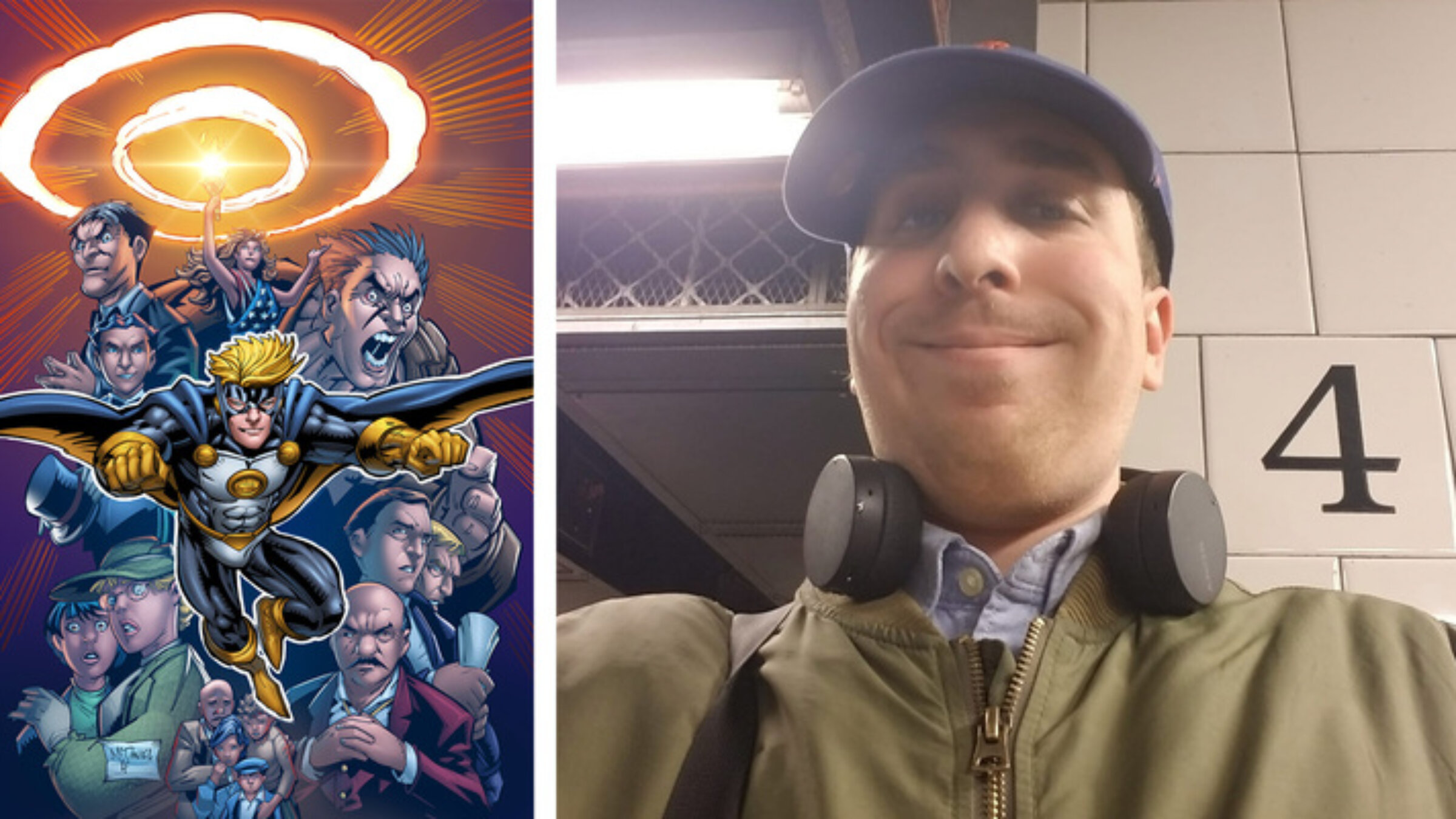Jewish superhero Liberty fights antisemites in new comics anthology
“American Dreams” draws upon the rich history of the New York Jewish immigrant experience of the early 1900s

Brooklyn writer Daniel Kalban is the creator of the comic book series American Dreams, which features a Jewish superhero as its main protagonist. Courtesy of Daniel Kalban
(New York Jewish Week) — Daniel Kalban is a 35-year-old law firm assistant who lives in Flatbush, Brooklyn. But when he’s not working his day job, he moonlights as a comic book writer, in a sort of double-life scenario that’s reminiscent of the caped crusaders he’s invented.
In 2016, Kalban created American Dreams, a comic book series centered on Jake Gold, a Jewish New Yorker in 1900 who, thanks to “a Thomas Edison experiment gone awry,” gains the ability to fly, as well as super strength to fight monstrous antisemites and other bad guys.
“I was dozing off listening to the score of ‘Ragtime’ the musical,” Kalban told the New York Jewish Week about his inspiration. “I was in a daze, and I was wondering what if superheroes like Batman and Robin were in that same tumultuous time period.”
Jewishness permeates the entire American Dreams storyline — the protagonist, who comes to be known as Liberty, escaped the pogroms in Russia, for example, and now works at a sweatshop in the Lower East Side. As a superhero, he fights a “bruiser” named Amalek, a biblical enemy of the Israelites. As he makes his way through turn-of-the-20th-century New York, he works for legendary Jewish magician Harry Houdini and is encouraged by Jewish activist and anarchist Emma Goldman to use his powers for good.
As a response to the positive feedback the comic has received over the years, Kalban plans to release an American Dreams book, which combines an anthology of the first five issues of the comic with brand-new material. He is funding the project through a Kickstarter campaign — and with a fundraising deadline of Thursday, Kalban already surpassed his goal of $5,500 by nearly $1,500 as of Tuesday afternoon.
Of course, Kalban is hardly the first person to create a Jewish superhero. The writer himself acknowledges that there would be no comic books without Jews, noting that the creators of Batman, Superman and Marvel Comics were all Jews.
In recent years, there has been a push for more Jewish representation in the comic book world, most recently in Disney+ series “Moon Knight,” which features Oscar Isaac as the Jewish superhero Marc Spector. In the show, Spector is seen wearing a Star of David, and he attends his mother’s shiva when she dies. DC Comics also introduced a Jewish superhero, Whistle, last year, who can talk to dogs and is inspired by the Torah. Kitty Pryde, a Jewish Mutant from X Men, also has her Judaism on full display in a 2013 comic book issue where she discusses how her first crush ended up being an antisemite.
Still, as Kalban points out, while there may be Jewish characters in these famous franchises, their identities are hardly the focus. “Usually some other aspect takes priority over their Jewishness,” Kalban said. “I’m not the most observant Jew in the world, but I still think we need more representation on the comic book page.”
The superhero Liberty is similar to the writer in that he’s “not the most observant Jew in the world, but he’s proud of being Jewish,” he said. Kalban was raised Reform in Brooklyn and went to Hebrew school.
The forthcoming book is a collaboration between Kalban and other artists, including penciler Dody Eka, inker Tebe Andry, and Netho Diaz, the latter best known for his work on the popular GI Joe comic book series. “I’m a writer, but I cannot draw to save my life,” Kalban said.
Kalban also draws upon the rich history of the New York Jewish immigrant experience of the early 1900s. “It deals with sweatshops, the violence between different groups and the tenements,” Kalban said. “People feel like they have their own elements of their family history within it.”
Ultimately, Kalban is most proud of adding a uniquely Jewish voice to the superhero oeuvre. “Having a major Jewish character, especially a Superman-level character, in terms of power, being Jewish, is important,” he said.
This article originally appeared on JTA.org.
A message from our CEO & publisher Rachel Fishman Feddersen
I hope you appreciated this article. Before you go, I’d like to ask you to please support the Forward’s award-winning, nonprofit journalism during this critical time.
We’ve set a goal to raise $260,000 by December 31. That’s an ambitious goal, but one that will give us the resources we need to invest in the high quality news, opinion, analysis and cultural coverage that isn’t available anywhere else.
If you feel inspired to make an impact, now is the time to give something back. Join us as a member at your most generous level.
— Rachel Fishman Feddersen, Publisher and CEO